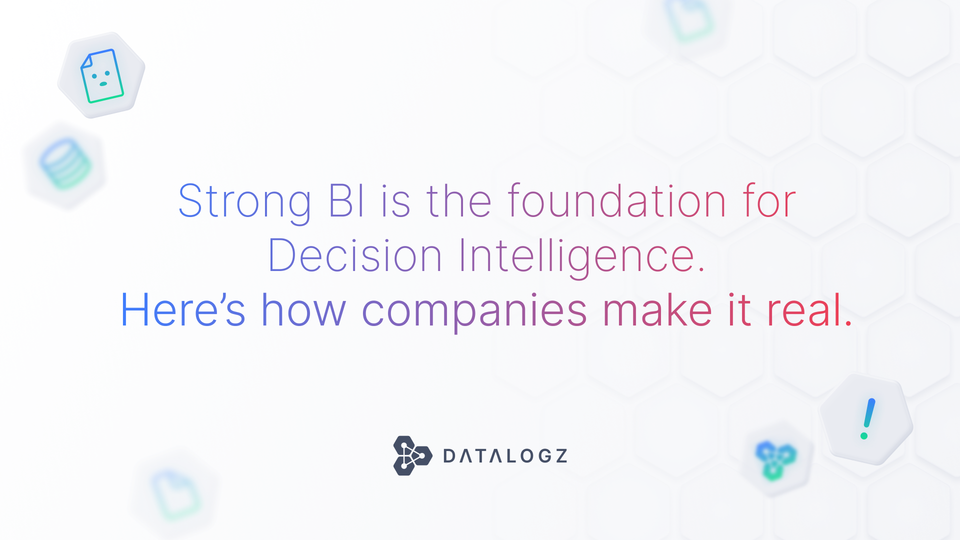Benefits of Implementing a BI Ops Platform
A BI Ops platform can help organizations to manage and optimize their BI systems effectively, which can lead to better decision-making and improved business outcomes.

Business intelligence (BI) systems are a critical component of modern businesses. They enable companies to gather, analyze, and use data to make informed decisions. However, managing and optimizing BI systems can be a complex and challenging task. This is where BI Ops comes in.
BI Ops is the practice of managing and optimizing BI systems. It involves the use of technology, processes, and best practices to ensure that BI systems are working efficiently and effectively. BI Ops is crucial in managing and optimizing BI systems, and implementing a BI Ops platform can offer several benefits.
Centralized Management
One of the primary benefits of implementing a BI Ops platform is centralized management. With a BI Ops platform, organizations can manage their BI systems from a single platform. This means that administrators can monitor and manage BI systems from a central location. Centralized management is crucial in managing BI systems because it enables administrators to quickly identify and resolve issues.
In addition, centralized management allows organizations to standardize their BI systems. Standardization ensures that all users are using the same tools and processes, which helps to improve data consistency and accuracy. This also helps to reduce the risk of errors and data discrepancies.
Data Governance
Another key benefit of implementing a BI Ops platform is data governance. Data governance is the process of establishing data standards, policies, and procedures to ensure data quality and consistency. With a BI Ops platform, organizations can establish data governance practices that ensure data is accurate, complete, and consistent.
Data governance is crucial in managing BI systems because it helps to ensure that data is reliable and trustworthy. This is especially important in organizations where multiple teams are using the same data sources. Data governance ensures that all teams are using the same data and that the data is consistent across the organization.
Automation
Automation is another critical benefit of implementing a BI Ops platform. Automation involves using technology to streamline BI processes and reduce manual efforts. With a BI Ops platform, organizations can automate several aspects of their BI systems, including data ingestion, transformation, and reporting.
Automation is crucial in managing BI systems because it helps to reduce the risk of errors and saves time. By automating repetitive tasks, organizations can free up time for their employees to focus on more strategic tasks.
Collaboration
Finally, implementing a BI Ops platform can help to improve collaboration across cross-functional teams. In organizations where multiple teams are working on BI projects, it can be challenging to collaborate effectively. With a BI Ops platform, organizations can establish processes and tools that enable cross-functional teams to work together seamlessly.
Collaboration is crucial in managing BI systems because it enables teams to work together to achieve common goals. This can lead to better decision-making and improved business outcomes.
In conclusion, implementing a BI Ops platform can offer several benefits to organizations. It enables centralized management, data governance, automation, and collaboration. These benefits can help organizations to manage and optimize their BI systems effectively, which can lead to better decision-making and improved business outcomes.
When implementing a BI Ops platform, organizations should focus on selecting a platform that meets their specific needs. They should also ensure that they have the right processes and people in place to support the platform. With the right platform, processes, and people, organizations can realize the benefits of BI Ops and take their BI systems to the next level.
Key Takeaways:
- Implementing a BI Ops platform offers several benefits, including centralized management, data governance, automation, and collaboration.
- Centralized management enables organizations to monitor and manage their BI systems from a central location, standardize their BI systems, and quickly identify and resolve issues.
- Data governance ensures data quality and consistency, which is critical in managing BI systems where multiple teams are using the same data sources.
- Automation helps to streamline BI processes, reduce manual efforts, and save time while reducing the risk of errors.
- Collaboration enables cross-functional teams to work together seamlessly, leading to better decision-making and improved business outcomes.
- To realize the benefits of BI Ops, organizations should focus on selecting the right platform that meets their specific needs and ensuring they have the right processes and people in place to support the platform.




